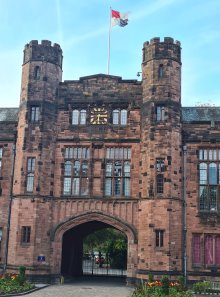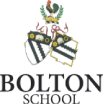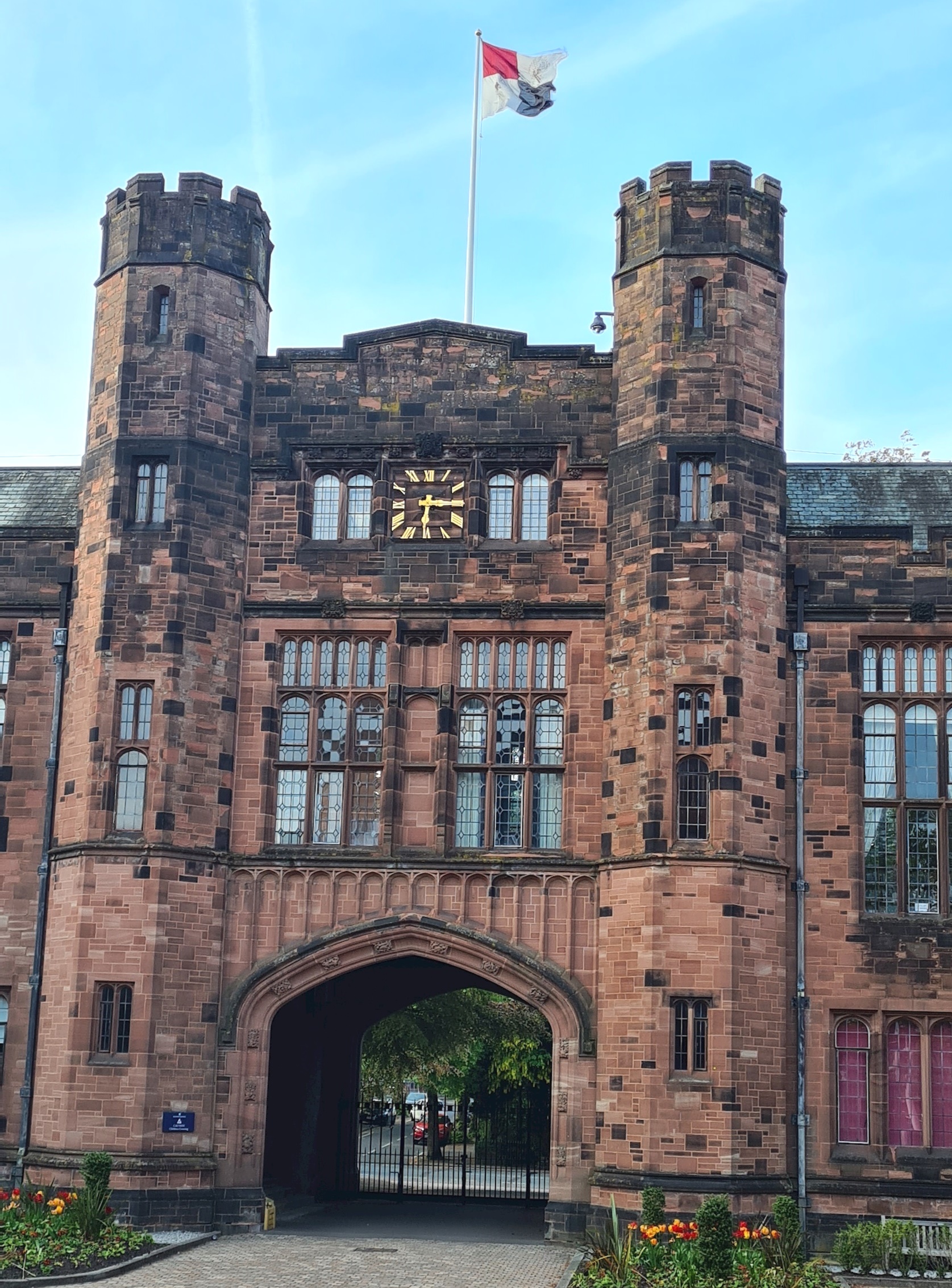
Full assemblies, led by Head of Foundation Mr Britton in both the Girls’ Division and Boys’ Division of Bolton School, celebrated the School’s founders. Each year, as near as possible to the date of the death of Lord Leverhulme, 7th May 1925, the school flag flies and Founders’ Day celebrates those that, since its inception in 1516, have contributed to the history of the school.
Pupils were taken back to 1982 and there was a focus on the contribution of Philip Lever, the 3rd Viscount Leverhulme. Born in 1915, the Viscount was born in the same year that the Foundation came into existence and he went on to become Chairman of Governors from 1949 to 1990. 1982 was the year of his benefaction of the new Leverhulme Pavilion to the school; it had been 60 years earlier that his father had bought the land there and erected the first building.
Each assembly saw Sixth Form students reflect on how the world was, how Bolton was and how life in school was in 1982. It was noted that the Falklands War took place in which a dozen Bolton School alumni fought but none were lost in action. It was also the year in which CDs, emoticons, the first computer virus, the film ET and Michael Jackson’s Thriller were introduced and Prince William was born.
Bolton itself was an industrial town in decline. Most of the cotton mills had shut down and Fred Dibnah was making a name for himself as the steeplejack who knocked chimneys down. Forty-five manufacturing companies had recently closed and there was high unemployment in the town. In the coalfields to the south, pits were beginning to close ahead of the miners’ strikes.
Each Division sang their School Song before consideration was given to how the school was faring in 1982. Dr Spurr was starting her fourth year of leading the Girls’ Division and it was Mr Baggley’s final year as Headmaster in the Boys’ Division after 16 years in charge. Both had a significant national reputation, leading the GSA and HMC respectively. Both also shared a passion for inclusive schools and helped shape the assisted places scheme that had begun in 1979. The 3rd Viscount Leverhulme opened the Leverhulme Pavilion on 11 May.
Mr Britton then spoke about the 3rd Viscount, Philip Lever, and his contribution to Bolton School in more detail. He told how Lever did not have to take on the project of his grandfather nor did he have to show the commitment that he did over the 40 years that he spent as Chairman of Governors. Besides the Pavilion, he informed school life financially and through his energy and leadership.
Born in 1915, soap was not for Philip Lever and he had no great interest in the family firm. His was a life of civic engagement. He was made a Knight of the Garter in 1988 for his contributions to national life, which saw him become Chancellor of Liverpool University and Lord Lieutenant of Cheshire. He served in the Middle East during the Second World War and then worked on the Sandringham estate for the King before taking over his father’s viscountcy. He liked to spring surprises, particularly on Presentation Evenings in the Girls’ Division where he had three daughters. On one such occasion, he chose to announce that he had bought a horse and named it Girls’ Division; it went on to win its first race 18 months later. Two other horses, named Boys’ Division and Bolton School, never won any of their races! Mr Britton said the 3rd Viscount shaped what our school is today, explaining how as Direct Grant funding died out, he led the Governing Body in deciding we would be an independent school not a state school. Lever pushed Assisted Places in the late 1970s and took the maximum number of places that the school could. He was vindicated in his decision as the scheme lasted 21 years and led into the School’s present day bursary scheme.
Pupils then sang Jerusalem before closing reflections from the Head Girl and Captain of School and from the Heads Mrs Kyle and Mr Ford. In the Girls’ Division tribute was paid to Mary Haslam and Lord Leverhulme and in the Boys’ Division to John Barton, Robert Lever and William Hesketh Lever. The Heads spoke about the boards outside their offices that detail the headteachers that have served across the Girls’ Division since 1877 and across the Boys’ Division since 1516. They told too how both Divisions have always sought to employ first rate scholars and teachers with a passion for intellectual curiosity and have strived to send out young adults equipped to make a difference in the world.
The Girls’ Division assembly ended with a recitation of the School Prayer and the Year 13 students, who will be leaving shortly, were applauded out of the Hall.
Watch the Girls’ Division Founders’ Day Assembly held on 7 May.
Watch the Boys’ Division Founders’ Day Assembly held on 8 May.























